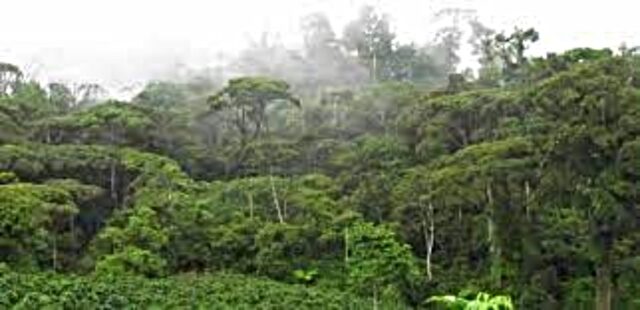The Green Climate Fund granted the so-called Central American Dry Corridor US $ 174.3 million that will be used to increase the capacity to adapt to the effects of the climate crisis, an official source reported this Thursday.
The Central American Bank for Economic Integration (CABEI) indicated in a statement that the Green Climate Fund approved the financing proposal for the Central American Dry Corridor Program presented by the financial institution.
The resources will benefit 2.4 million people through access to technical assistance and credit to implement adaptation practices to the climate crisis, said CABEI, with offices in Central America.
CABEI Executive President Dante Mossi said the initiative is part of the Central American Resilient Reconstruction Program for US$ 2,513 million approved by the regional bank in November 2020 in response to the effects of hurricanes Eta and Iota.
The objective of the Central American program “is to provide resources to the countries of the SICA (Central American Integration System) region to finance projects that face and prevent natural disasters to adapt to the effects of climate change and implement short, medium-term and long term measures”, he explained.
The Central American Dry Corridor, which encompasses the peaceful coasts of Guatemala, El Salvador, Honduras, Nicaragua, Costa Rica and Panama, is one of the most vulnerable areas in the world to the climate crisis and in recent years it has been experiencing episodes of intense droughts and torrential rains caused by global warming.
Of the amount approved by the Green Fund, US$ 84.3 million are donated to implement Ecosystem-based Adaptation (EbA) measures and US$ 60 million are reimbursable resources channeled through financial institutions allied to CABEI, he added.

The remaining 30 million dollars were granted for partial guarantees that back the loans, said CABEI, an institution that will channel US$ 42.8 million through its allied financial institutions and US$ 51.3 million as contributions in kind from partner countries.
CABEI, founded in 1960, continues to ‘consolidate’ itself as the leading financial institution in Central America in mobilizing resources from the Green Climate Fund, which contribute to mitigating and adapting to climate change. So far, it has obtained the approval of US$ 526.5 million for the execution of 4 investment operations in the Central American region.
It was founded by El Salvador, Costa Rica, Guatemala, Honduras and Nicaragua. Panama and the Dominican Republic were later joined as regional partners, while Belize is under the status of a non-founding beneficiary country. The extra-regional partner countries of the financial organization are Argentina, Colombia, South Korea, Cuba, Spain, Mexico, and Taiwan.

